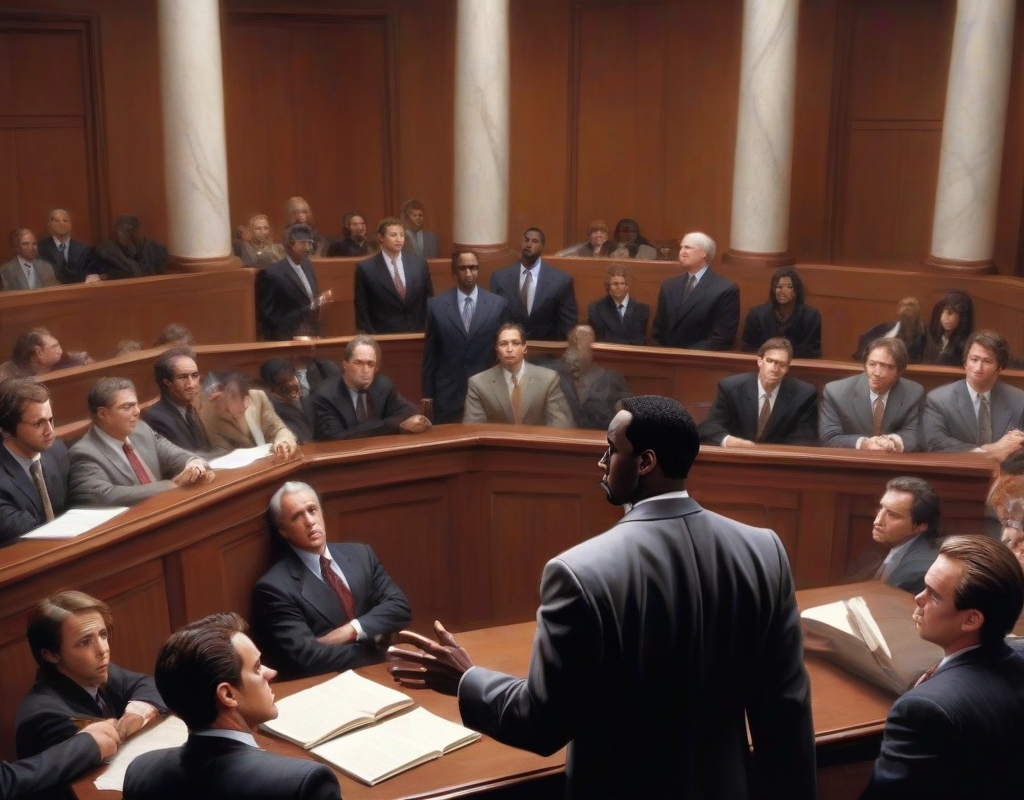In a landmark decision that underscores the sensitivity of legal procedures in high-profile cases, Sean “Diddy” Combs recently secured a major legal victory when a federal judge ruled that prosecutors must destroy 19 pages of handwritten notes confiscated from his jail cell. This order is a central development in Combs’ ongoing criminal trial which has captured significant public and media attention due to its implications on privacy rights and legal ethics.
### The Incident and Ensuing Legal Challenge
Federal agents, during a raid at the Metropolitan Detention Center in Brooklyn aimed at clamping down on contraband, seized the notes from Combs’ cell. The defense vehemently challenged the seizure, arguing the notes were part of privileged legal communications, essential for Combs’ defense strategy. They contained a mix of personal reminders, legal thoughts, and inspirational quotes, making them sensitive materials that, in the eyes of the defense, were wrongfully taken.
Diddy’s attorney, Marc Agnifilo, labeled the seizure a significant overreach of governmental power, emphasizing the need to protect such sensitive communications from being exposed or used in court improperly. Agnifilo’s argument highlighted the fundamental legal principle of attorney-client privilege, which he asserted was violated in this instance.
### Prosecutorial Arguments and Judicial Ruling
Prosecutors contended that the raid was justified, arguing that the materials seized did not fall under the protective umbrella of attorney-client privilege. They maintained this stance even though independent government lawyers who reviewed the notes found no evidence of privilege. Nonetheless, Judge Arun Subramanian favored the defense’s argument, directing the destruction of the notes and barring their use in the ongoing case pending further review on their admissibility.
This judicial decision pointedly reflects the delicate balance between enforcing the law and protecting individual rights within the confines of judicial processes.
### Legal Implications and Scholarly Insights
The implications of this ruling are substantial, touching on the broader debate concerning the sanctity of attorney-client communications, especially within the constrained environment of incarceration. Carolyn Jaloway, a criminal law expert, underscored the importance of this ruling in safeguarding fair trial rights, stating that maintaining strict boundaries on legal overreach is crucial for the justice system’s integrity.
### Effects on Diddy’s Ongoing Trial
The court’s decision has strategic implications for the ongoing trial where Combs faces serious allegations, including sex trafficking and racketeering. By excluding the notes from the trial, at least temporarily, the prosecution’s case might be affected, lacking what they considered pivotal evidence.
This decision symbolizes not only the upholding of fundamental legal rights but also sets a precedent that could influence how notes and personal writings in custody are treated in future cases.
### Broader Legal and Social Context
The case against Combs also brings to light systemic issues related to the treatment of detainees’ rights and the potential for breaches of confidentiality. Historically, celebrity cases like this one have amplified existing concerns within the justice system, and have often led to public discourse and sometimes even reforms in how legal procedures are handled.
### Public and Professional Reactions
The public and various legal observers have given mixed reactions to the judge’s ruling. While some civil rights advocates view it as a victory for personal liberties and justice, others remain skeptical about the implications of such decisions on the integrity of law enforcement procedures within correctional facilities.
Martha Janovich, a legal analyst specializing in civil rights, noted, “This case sheds light on ongoing conflicts between necessary security measures in prisons and the uncompromised rights of the inmates, with significant implications for the judicial standards in the future.”
### Looking Forward
With a bail hearing scheduled for November 22, and the decision to allow Combs to appear unshackled, the trial is set to proceed with heightened scrutiny on how justice is administered, particularly in cases involving high-profile figures like Diddy. This not only underscores the challenges in navigating complex legal battles but also highlights the critical role of judiciary in maintaining fairness in the face of public and media scrutiny.
The continuation of this case will likely serve as a significant reference point for future legal proceedings involving material seizures in custody, potentially catalyzing shifts in both legislative and judicial practice in the U.S. As the legal community and the public eye continue to follow this case, the outcomes will undoubtedly contribute to the ongoing dialogue about the balance between ensuring security and protecting the rights of individuals within the judicial system.




